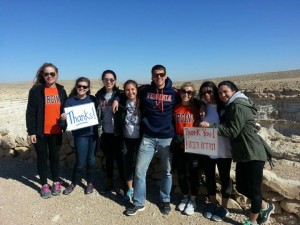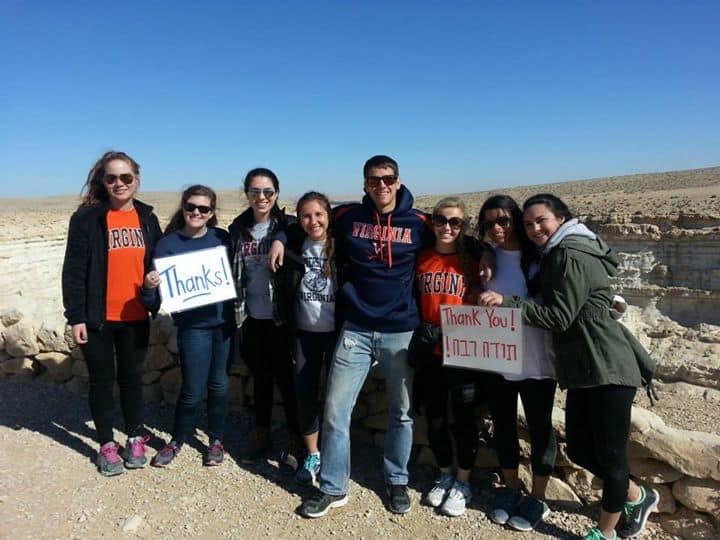
Clara Griff, Alexis Greenberg, Hannah Neukrug, Ana Turenkov, Ben Walzer, Paulina Mirovski, Gabrielle Soussan, and Erica Perlman.
Before going to Israel, I expected to visit historical and religious sights, make some new friends, and eat a lot of hummus. Though these things all ended up being true, I got a lot more from my trip than I anticipated. Not only did I experience a different culture, but I also learned from it. Additionally, due to the interactions and self-reflections I had on the trip, I finally have a clear idea of my Jewish identity.
The most significant part of Birthright was spending five days with Israeli soldiers. Their purpose (which I was initially unaware of) was not to protect us; it was to learn from us and for us to learn from them. While I learned about their experiences in the army, I also learned about their political beliefs, their passions, their goals, their families and friends, and their Jewish identities.
I learned how to order falafel the Israeli way (cutting the line and saying “hurry up” rather than “please”), about the Israeli party- scene, how to haggle for a souvenir at a street market, and how to apply the Hebrew word “balagan” (which means “mess”) to each and every situation. Though I knew that the Israelis were my age or close to my age, I couldn’t help but think of them as older. I came to understand that this feeling resulted from knowing that no matter how cheerful, carefree, funny, and silly they seemed, they had experienced tragedies that I couldn’t even fathom.
I feel more confident in the notion of my Jewish identity than ever before since returning from birthright. Before traveling to Israel, I spent little time reflecting on what Judaism meant to me. I have always considered myself to be a “Jewish Atheist,” but before going to Israel, I also thought of myself as being just “Jew-ish” and even described myself in this way. I no longer attend services regularly, I don’t observe all Jewish holidays, and I don’t believe in God. Furthermore, I compared the role Judaism plays in my life to the role it plays in the lives of other, more religiously observant Jews. Going to Israel made me realize that there are innumerable ways to practice Judaism, and each way is equally legitimate. In other words, I came to the conclusion that Judaism can be unified without being uniform.
In Israel, I heard a speech given by Avraham Infeld, president of the Chais Family Foundation and a former president of Hillel International. He proclaimed multiple times that “Judaism is not a religion,” a message that stuck with me. Judaism, in Infeld’s words, is instead a five-legged table comprised of memory, family, covenant, Hebrew, and Israel. His speech, the conversations I had with Jews who held many different beliefs and came from many different backgrounds, and the introspection I experienced during the Birthright seminars with my trip leaders and fellow students all helped me to understand what Judaism means to me.
More than anything, however, being surrounded by both strangers and friends with whom I share a vital part of my identity and being in a land rooted in the history of my people made me recognize the importance and meaning of Judaism in my life.
By Hannah Neukrug
Hillel at UVa and Birthright are recipients of funds from United Jewish Federation of Tidewater.

